 W
WMitch Anderson is a Romanian-born American film director, producer, writer, researcher and editor. He is the only son of former political dissidents of the Stalinist era. His first film, The World Without US, explores what might happen if the United States were to leave the international arena, rescind its global reach and return to being a non-interventionist nation. His second film, China's Century of Humiliation, examines how both Chinese and Western societies evolved based on their Confucian and Christian ideologies, respectively. His third documentary, The Men Who Lost China, explores how China's current foreign policy can be traced back to US involvement in the 1911 Chinese Revolution and the Western attitude to China after the First World War.
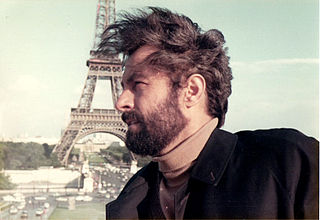 W
WPaul Barbă Neagră was a Romanian film director and essayist who, starting in 1957, has directed short and medium-length documentaries on topics related to culture and the arts. In 1964, he defected and settled in France, where he also worked in the media.
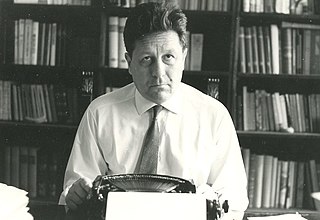 W
WEugen Barbu was a Romanian modern novelist, short story writer, journalist, and correspondent member of the Romanian Academy. The latter position was vehemently criticized by those who contended that he plagiarized in his novel Incognito and for the anti-Semitic campaigns he initiated in the newspapers Săptămâna and România Mare which he founded and led. He also founded, alongside his disciple Corneliu Vadim Tudor, the nationalist Greater Romania Party (PRM).
 W
WNicolae Constantin Batzaria, was a Macedonian-born Aromanian cultural activist, Ottoman statesman and Romanian writer. A schoolteacher and inspector of Aromanian education within Ottoman lands, he established his reputation as a journalist before 1908. During his thirties, he joined the clandestine revolutionary movement known as the Young Turks, serving as its liaison with Aromanian factions. The victorious Young Turk Revolution brought Batzaria to the forefront of Ottoman politics, ensuring him a seat in the Ottoman Senate, and he briefly served as Minister of Public Works under the Three Pashas. He was tasked with several diplomatic missions, including attending the London Conference of 1913, but, alerted by the Three Pashas' World War I alliances and the Young Turks' nationalism, he soon after quit the Ottoman political scene and left into voluntary exile.
 W
WT.O. Bobe is a Romanian poet and screenwriter for film and television.
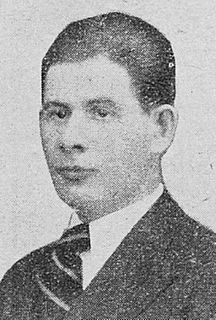 W
WIon Călugăru was a Romanian novelist, short story writer, journalist and critic. As a figure on Romania's modernist scene throughout the early interwar period, he was noted for combining a picturesque perspective on the rural Jewish-Romanian community, to which he belonged, with traditionalist and avant-garde elements. His early works, including the novel Copilăria unui netrebnic, bring together elements of Social Realism, Surrealism and Expressionism over a conventional narrative line based on oral tradition and the classics of Romanian literature. Călugăru, who moved from the moderate Contimporanul magazine to the Surrealist platform unu, was also one of the main contributors to Integral, a tribune for avant-garde literature in general. Although publicly known for his socialist convictions and his far left inclinations, he was, through his position at Cuvântul newspaper, present in the proximity of fascist circles, and had an ambiguous attitude toward his employer, the far right thinker Nae Ionescu.
 W
WIon Filotti Cantacuzino or Ion I. Cantacuzino was a Romanian film producer, writer and psychiatrist.
 W
WNae Caranfil is a Romanian film director and screenwriter.
 W
WBenjamin Fondane or Benjamin Fundoianu was a Romanian and French poet, critic and existentialist philosopher, also noted for his work in film and theater. Known from his Romanian youth as a Symbolist poet and columnist, he alternated Neoromantic and Expressionist themes with echoes from Tudor Arghezi, and dedicated several poetic cycles to the rural life of his native Moldavia. Fondane, who was of Jewish Romanian extraction and a nephew of Jewish intellectuals Elias and Moses Schwartzfeld, participated in both minority secular Jewish culture and mainstream Romanian culture. During and after World War I, he was active as a cultural critic, avant-garde promoter and, with his brother-in-law Armand Pascal, manager of the theatrical troupe Insula.
 W
WRadu Gabrea was a Romanian film director and screenwriter. He directed more than twenty films between 1969 and 2016. He showed his first film in the Locarno Festival.
 W
WCălin Gruia was a Romanian writer, author mainly of children's fairy tales and poems.
 W
WHaralamb George Lecca was a Romanian poet, playwright and translator, grandson of artist Constantin Lecca and brother of genealogist Octav-George Lecca, as well as nephew and rival of writer Ion Luca Caragiale. He had an unsettled youth, studying medicine and law for a while, and also reaching a Sub-Officer's rank in the terrestrial army. He debuted in literature under the guidance of Bogdan Petriceicu Hasdeu, who also employed Lecca's services as a medium. His early work was in poetry, often outstandingly macabre, evidencing his familiarity with 19th-century French literature and hinting at a vague affiliation with Symbolism. Briefly a collaborator of Junimea society, then of its dissident wings, Lecca never joined the fledgling Symbolist movement, and spent his later life in relative isolation from all literary circles.
 W
WAlexandru Macedonski was a Romanian poet, novelist, dramatist and literary critic, known especially for having promoted French Symbolism in his native country, and for leading the Romanian Symbolist movement during its early decades. A forerunner of local modernist literature, he is the first local author to have used free verse, and claimed by some to have been the first in modern European literature. Within the framework of Romanian literature, Macedonski is seen by critics as second only to national poet Mihai Eminescu; as leader of a cosmopolitan and aestheticist trend formed around his Literatorul journal, he was diametrically opposed to the inward-looking traditionalism of Eminescu and his school.
 W
WAlexandru Maftei is a Romanian film director. He graduated from the Caragiale Academy of Theatrical Arts and Cinematography in 1994. His first feature film was Fii cu ochii pe fericire from 1999. After that he worked in advertisement and television for several years before he made his second feature film, the romantic comedy Hello! How Are You? from 2011. His film Miss Christina was the third most successful domestic film in Romania in 2013.
 W
WRadu Mihăileanu is a Romanian-born French film director and screenwriter. He left Romania in 1980 and graduated the IDHEC cinematographic institute in Paris. In addition to his work in the cinema he published a book of poems in 1987 titled Une vague en mal de mer. His film The Source premiered in competition at the 2011 Cannes Film Festival.
 W
WBernard Natan was a Franco-Romanian film entrepreneur, director and actor of the 1920s and 1930s. He was once said by historians to be one of the earliest pornographic film directors and pornographic film actors, although there is now considerable doubt about this. Natan certainly worked in mainstream cinema from his youngest days, working his way up from projectionist and chemist to cinematographer and producer. He eventually acquired the giant French motion picture studio Pathé in 1929. Pathé collapsed in 1935, and Natan was convicted of fraud. However, he laid the foundation for the modern film industry in France and helped revolutionize film technology around the world. Natan died after being transported to Auschwitz concentration camp.
 W
WCălin Peter Netzer is a Romanian film director who won the Golden Bear at the 63rd Berlin International Film Festival.
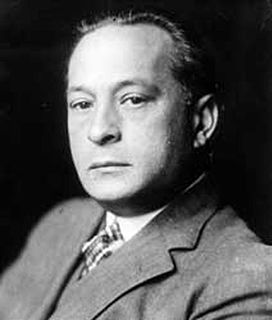 W
WLupu Pick was a German actor, film director, producer, and screenwriter of the silent era. He appeared in 50 films between 1910 and 1928.
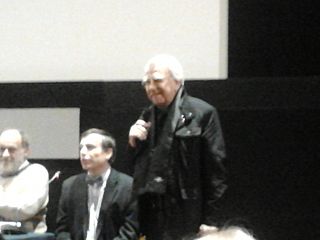 W
WDan Pița is a Romanian film director and screenwriter.
 W
WTitus Viorel Popovici was a Romanian screenwriter and author.
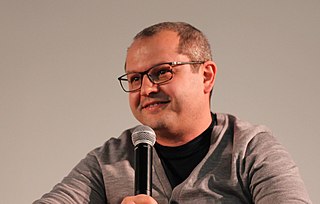 W
WCorneliu Porumboiu is a Romanian film director, screenwriter and film producer.
 W
WCristi Puiu is a Romanian film director and screenwriter. With Anca Puiu and Alex Munteanu, in 2004 he founded a cinema production company, naming it Mandragora.
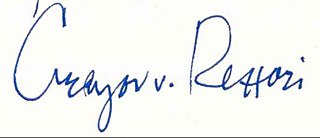 W
WGregor von Rezzori, born Gregor Arnulph Hilarius d'Arezzo, was an Austrian-born, Romanian, German-language novelist, memoirist, screenwriter and author of radio plays, as well as an actor, journalist, visual artist, art critic and art collector. He was fluent in German, Romanian, Italian, Polish, Ukrainian, Yiddish, French, and English; during his life, von Rezzori was successively a citizen of Austria-Hungary, Romania, and the Soviet Union, before becoming a stateless person and spending his final years as a citizen of Austria. He married Beatrice Monti della Corte.
 W
WStelian Tănase is a Romanian writer, journalist, political analyst, and talk show host. Tănase was from November 2013 to October 2015 the president of TVR. Having briefly engaged in politics during the early 1990s, after the fall of the Communist regime, he has remained a leading figure of the Romanian civil society.
 W
WLucian Dan Teodorovici is a Romanian writer, scriptwriter and theatre director.
 W
WMircea Zaciu was a Romanian critic, literary historian and prose writer.